The Emerging Exception
The traditional label of ‘middle power’ fails to capture India’s growing status. The country’s ability to shape the international discourse is no longer in question. India sees itself as a key player the global order.
 Courtesy: The Diplomatist
Courtesy: The Diplomatist
The traditional label of ‘middle power’ fails to capture India’s growing status. The country’s ability to shape the international discourse is no longer in question. India sees itself as a key player the global order.
 Courtesy: Körber-Stiftung
Courtesy: Körber-Stiftung
The world is undergoing profound transformations that are not being driven only by the United States, China or Russia. Small and medium-sized States are carving out a legitimate place for themselves in the emerging new order. This second edition of our annual Emerging Middle Powers Report is a reminder that the signs of the times are showing a new momentum for middle powers.
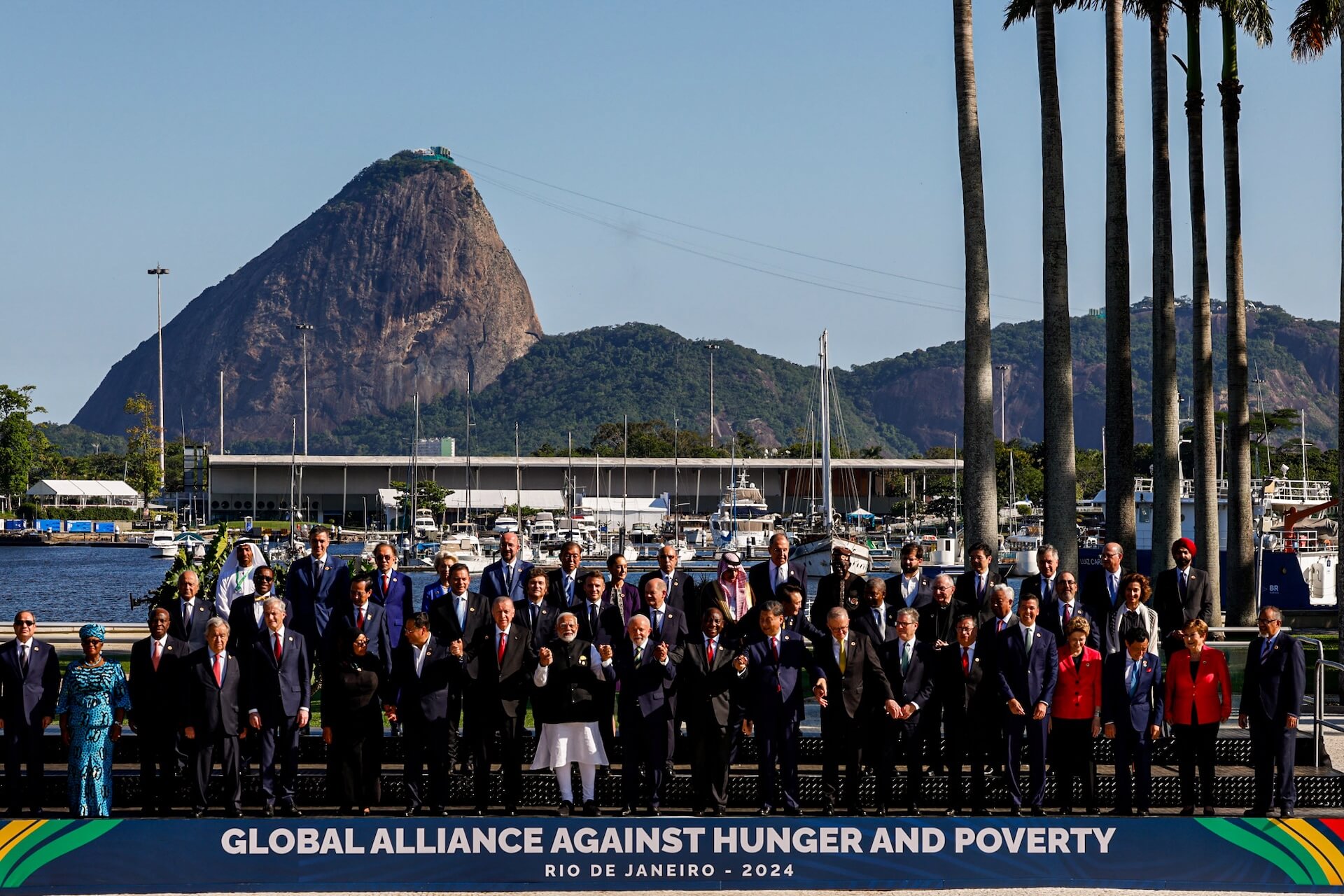 Courtesy:
Courtesy:
The G20 Leaders' Summit, held in Brazil on November 18-19, focused on advancing climate action, addressing hunger and poverty, and global governance reform. Along with welcoming the African Union as a full member, it balanced continuity with innovation and highlighted the forum's role in creating and pushing multilateral solutions to pressing global challenges.
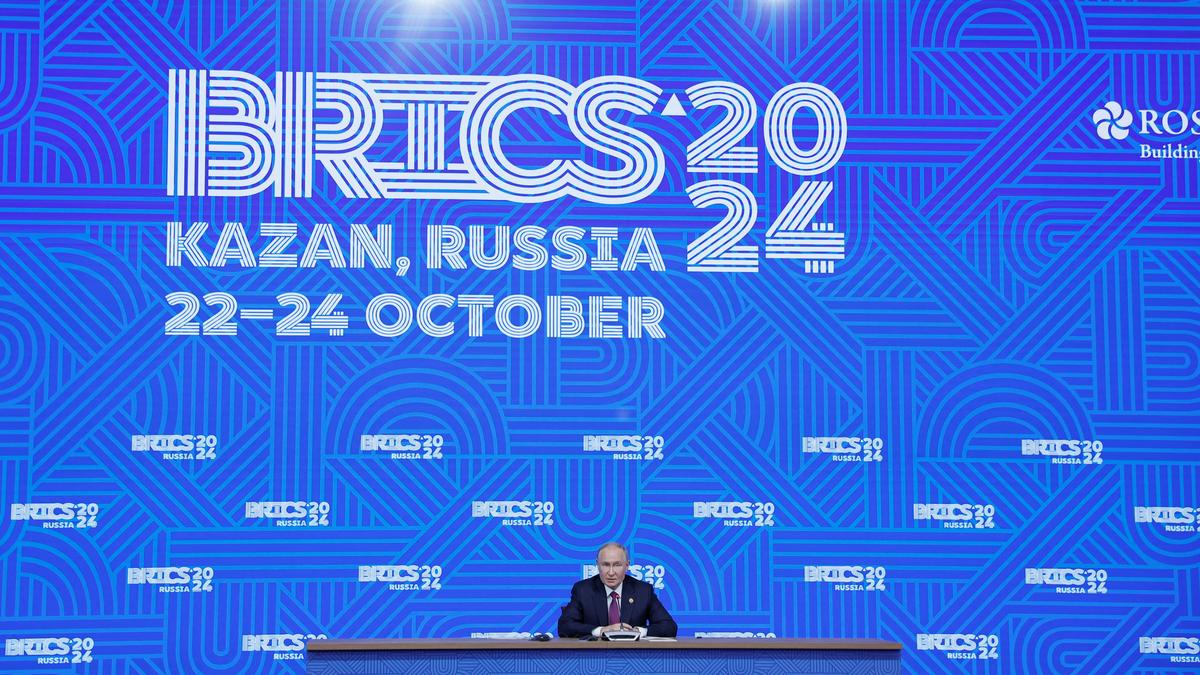 Courtesy:
Courtesy:
The 16th BRICS Summit, held in Russia’s Kazan in October, was the first summit of the expanded grouping. With 13 new partner states invited, it revealed how increased membership has the potential to enhance the grouping’s influence. For India, BRICS serves as a bridge between the west, the east, the north and the south, making New Delhi the geopolitical sweet spot.
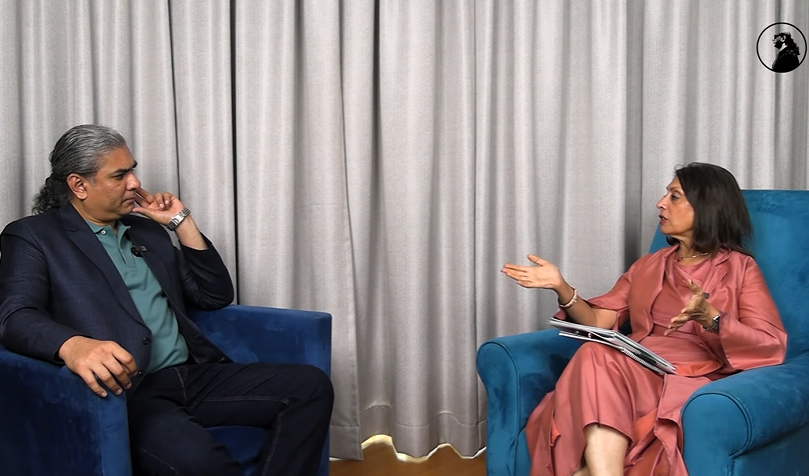 Courtesy: Abhijit Chavda Podcast
Courtesy: Abhijit Chavda Podcast
Emerging middle powers like India, Brazil and South Africa are articulating their interests on the global stage with growing assertiveness. Manjeet Kripalani, Executive Director, Gateway House, joins Abhijit Chavda on his eponymous podcast to discuss changing dynamics between the West and the Global South, and how western and emerging middle powers can collaborate on shared priorities like multilateral reform, technology transfer and international trade.
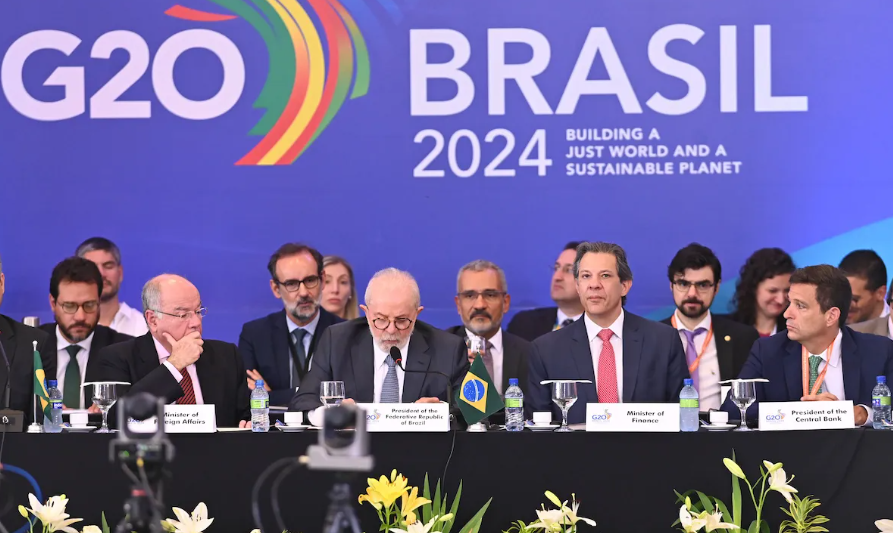 Courtesy: Brookings Institution
Courtesy: Brookings Institution
It is three months into Brazil’s G20 presidency, and the country is working hard on its agenda of prioritising energy transitions, reform of global governance and social inclusion. These will flow well into Brazil’s chairing of two other multilateral events in 2025 — BRICS and the COP30. Carlos Frederico de Souza Coelho, Senior Fellow at the BRICS Policy Center, talks about Brazil’s G20 agenda, its intention to advance India’s G20 efforts for global development, and what to expect from his country’s COP30 and BRICS presidencies.
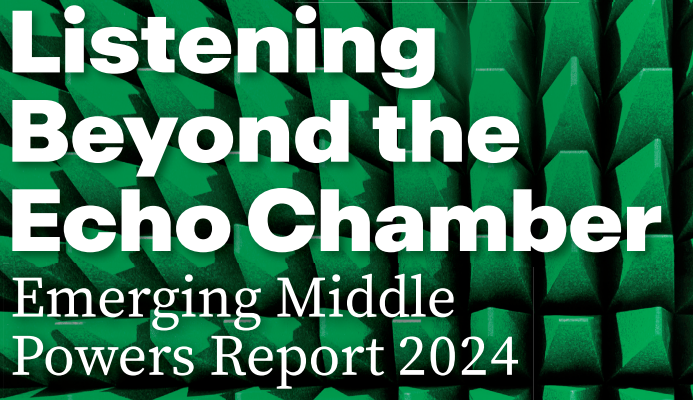 Courtesy: Körber-Stiftung
Courtesy: Körber-Stiftung
Divergent global reactions to major crises such as those sparked by the war in Ukraine and NATO’s Afghanistan withdrawal have widened the chasm between Western countries and emerging middle powers. This survey, conducted among nearly 1,000 experts from India, Brazil, South Africa and Germany, examines key foreign policy priorities in these countries, and reveals that despite differences, dialogue is possible.
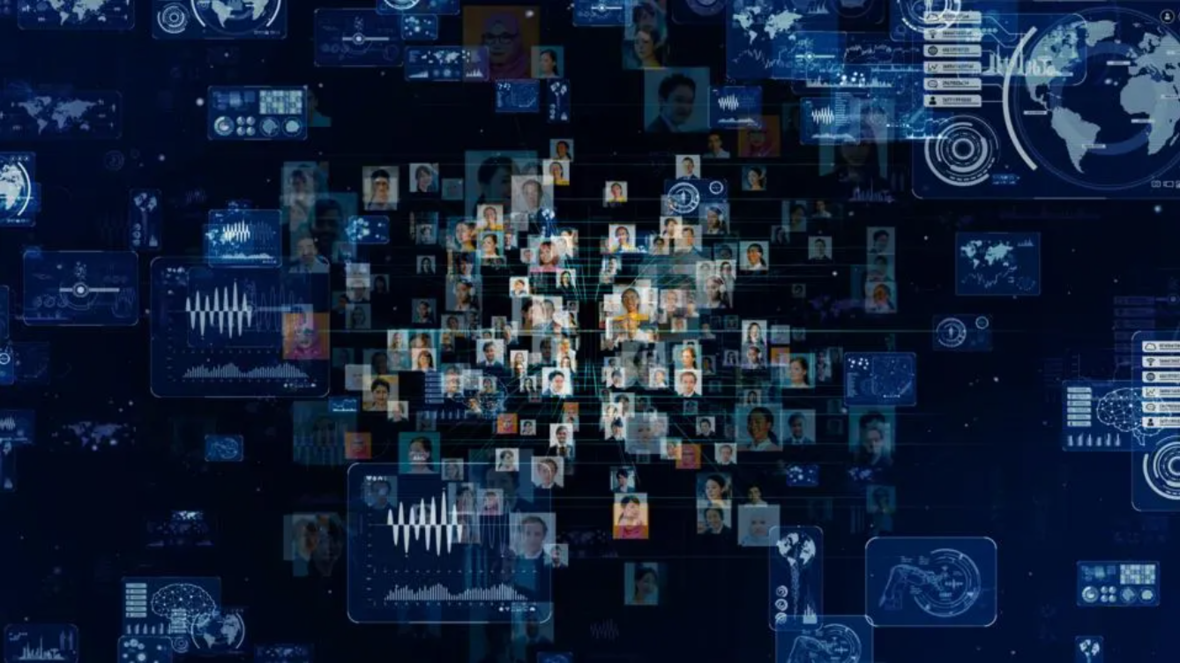 Courtesy: European Parliament
Courtesy: European Parliament
Artificial Intelligence is a transformative technology offering developmental opportunities for marginalised communities across developing and emerging countries. However, the costs of AI access through private platforms are becoming exclusionary, negating these opportunities. It is critical to make the advantages of AI available to all. The G20 nations can invest in open source technology and create an AI Stack similar to the India Stack, for public benefit.
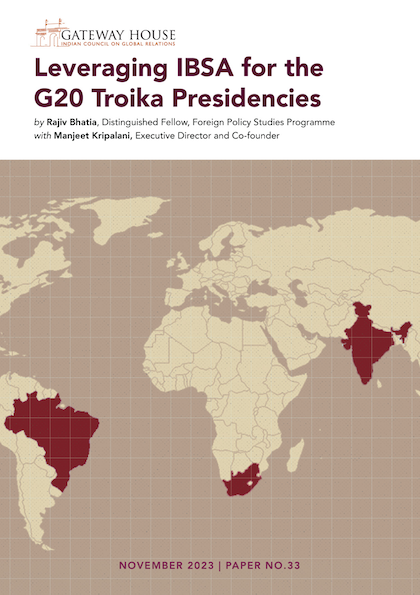 Courtesy: Gateway House
Courtesy: Gateway House
On December 1, 2023, India will hand over the G20 Presidency to Brazil. The G20 troika will now comprise the three IBSA countries – India, Brazil, South Africa – till November 2025. This trio has an agenda in common and with the G20, such as multilateral reform, energy transitions and digitalisation. IBSA should use its mechanisms and natural solidarity to advance the interests of the Global South.
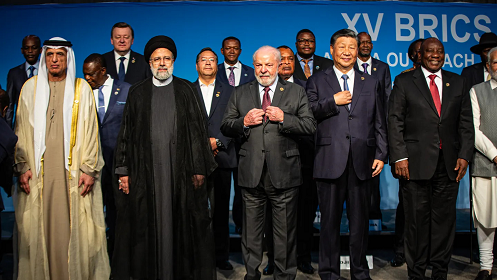 Courtesy: Fox News
Courtesy: Fox News
The decision to invite six countries — Argentina, Egypt, Ethiopia, Iran, Saudi Arabia, and the UAE — to join BRICS as full members has opened the grouping to a new geopolitical era. India can now play a seminal but challenging role in this evolved dynamic, given its growing cooperation with the West on the one hand and its active pursuit of the interests of the Global South on the other.